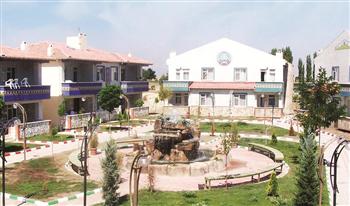Turkey ranks first in Europe in terms of resource potential and third in terms of thermal spring practices. Attempting to make use of this advantage, the Culture Ministry will bring a new approach to use traditional thermal springs more effectively with new projects and the establishment of new facilities.
 Turkey, which is among the top seven countries in the world on the list of geothermal resources, is set to make its thermal spring and hamam culture a “brand” by 2023, the 100th anniversary of the foundation of the Republic.
Turkey, which is among the top seven countries in the world on the list of geothermal resources, is set to make its thermal spring and hamam culture a “brand” by 2023, the 100th anniversary of the foundation of the Republic.
According to information provided by the Culture and Tourism Ministry, Turkey ranks first in Europe in terms of resource potential and third in terms of thermal spring practices. With an attempt to make use of this advantage, the ministry will bring a new approach to the use of traditional thermal springs more effectively.
Within the scope of work that started in 2007, facilities of international standard have been constructed to serve guests throughout the year.
The facilities, which offer all kinds of services such as cure centers, entertainment, sport activities and others, combine Turkish thermal spring and hamam culture with contemporary architecture and business administration.
The Culture and Tourism Ministry, which is progressing to reach the short-term goal of the Thermal Tourism Master plan, which is 50,000 bed capacity, has doubled the number of facilities and beds in five years since 2007.
So far, the number of hotels with tourism establishment certificates has reached 67, the number of hotels with tourism investment license has reached 27, and those with municipal certificates has reached 46. The total number of beds in these facilities has increased from 17,767 to 37,290.
Share of thermal tourism is one percent
While 68 percent of short-term goals were achieved by 2011, it is expected that the goal will
be completely achieved this year and the bed capacity will reach 50,000.
Although Turkey has a significant share of sea, sand and sun tourism in its economy, the figures in thermal tourism are not satisfactory.
The share of thermal tourism in the country is about one percent in terms of the number of facilities and bed capacity. There are some 240 thermal springs in 46 cities.
On the other hand, the number of international accredited health institutes and hospitals has reached 43. Now the goal is to increase the bed capacity to 500,000 by 2013.
HDN















